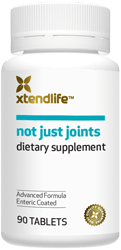

| |||||||||||||||||
|
GOUT:
Cherry Juice Gout RemedyFoods High in Uric Acid Gout Foods Gout Relief Gout Treatments Low Purine Diet Uric Acid Levels Diet for Gout ARTHRITIS:
Arthritis Pain Reliever PAIN:
Lower Back Pain RemediesNatural Anti Inflammatory Joint Pain was created to help people with osteoarthritis, rheumatoid arthritis and related disorders learn about treatments to ease symptoms and help them lead a more comfortable life. There are natural treatments for joint pain that can have significant benefits, and more and more people are choosing safer alternatives to treat joint pain due to arthritis. |
What Medications Raise and Lower Uric Acid Levels?When it comes to treating gout, the amount of uric acid in the blood makes a huge difference to the state of the disease. Basically, the lower the levels the better. So it's important to be aware of medications that may be raising these levels, as well as those that may help decrease uric acid, thus helping alleviate painful symptoms. What are the normal levels of uric acid? What drugs increase uric acid levels?
What drugs decrease uric acid levels?
Let's take a closer look at some of these... Aspirin Aspirin is a very common painkiller and an anti-inflammatory medication. Interestingly, tests have revealed that higher doses of aspirin can actually decrease the levels of uric acid while lower doses can increase the levels of uric acid. This makes aspirin useful for treating gout but it is also known that it has other side effects if taken in high doses. Thiazide Diuretics These are a class of medications that are used to control high blood pressure. They increase the flow of urine and thus lower the levels of fluids in the body. This also causes the levels of uric acid to go up. These medications can cause coronary problems as well. Immunosuppressants Immune suppressants such as Neoral and Tacrolimus can cause an increase in uric acid levels. These immune suppressants are also referred to as anti-rejection medications and they are used during an organ transplant. The drugs enable an organ to become acceptable to the body. However, such medications also increase the levels of uric acid in the blood by suppressing the function of the kidneys. Another such drug is cyclosporine. It affects the kidneys and may cause the gradual buildup of uric acid levels. Glucose Glucose also decreases the amount of uric acid in the blood. Similarly, too much alcohol is also bad for you as it increases these levels. This complicates things, as higher levels of uric acid are something that gout patients want to desperately avoid. Vitamin C or ascorbic acid This vitamin is good for people suffering from gout as it helps to lower the levels of uric acid in the blood. It is important that a gout patient take Vitamin C in small doses. Large doses can actually levels, as aspirin does. In conclusion In general, there are many drugs that elevate the levels of uric acid and many that decrease them. Some cause changes in uric acid concentration with larger doses and some with smaller doses. If you have gout, talk to your doctor about medications you may be on that are making things worse, and those that may help the situation. Also, keep in mind that you can always try natural solutions first to see if any of those work for you. Featured Gout Treatment After extensively researching treatment options for gout, we discovered a breakthrough natural treatment that sufferers have had tremendous success with. It is a good alternative for those not looking to be on medications. This special gout treatment is revealed in the Gout Remedy Report and it's a complete system discussing all of the natural remedies to help reduce inflammation, swelling and stiffness as well as protect the joints and provide long lasting pain relief. Try the Gout Remedy Report today and see if this natural, effective gout treatment works for you. more than drugs that raise uric acid on our Joint Pain home page |
Featured Arthritis Treatment Relieve Arthritis Pain Significantly

Discover how Not Just Joints can treat arthritis pain naturally without the side effects of prescription drugs. |
||||